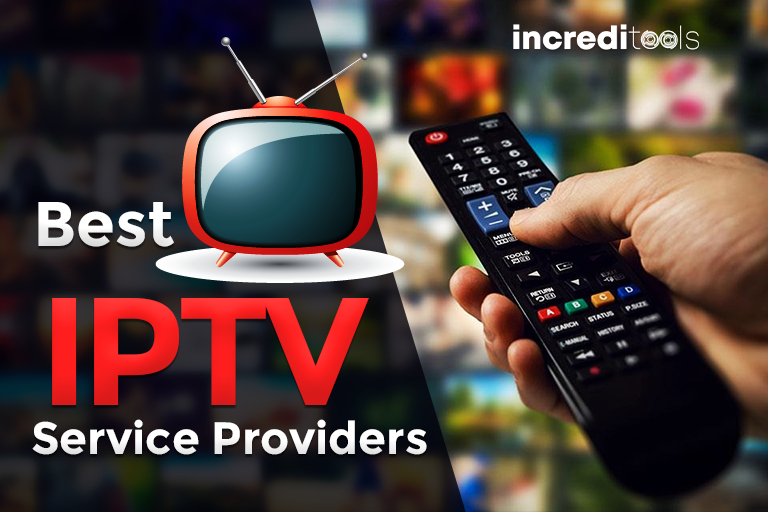Welcome to the Future: IPTV and the Evolution of TV
Television has undergone a remarkable transformation over the decades, evolving from traditional broadcast methods to the innovative platforms of today. At iptv france of this evolution is Internet Protocol Television, or IPTV, which represents a significant shift in how we consume media. With the rise of streaming services and on-demand content, IPTV is set to redefine our viewing experiences, offering unprecedented flexibility and choice.
As viewers increasingly seek personalized content tailored to their preferences, IPTV services emerge as the ideal solution. Gone are the days of rigid programming schedules dictating when and what we watch. Instead, IPTV provides access to a vast array of channels and shows, allowing users to enjoy their favorite content whenever and wherever they choose. This shift not only caters to the demands of modern audiences but also paves the way for the future of television as a dynamic and interactive experience.
What is IPTV?
IPTV, or Internet Protocol Television, is a revolutionary technology that allows users to stream television content over the internet rather than through traditional means such as cable or satellite. By delivering video content through Internet Protocol, IPTV provides a more flexible and interactive viewing experience. Users can access a broad range of channels and on-demand content directly on their devices, enhancing the way audiences interact with television programming.

Unlike conventional broadcasting methods, IPTV operates on a subscription model, offering various packages that cater to different tastes and preferences. This service delivers high-quality video content that is often available in real time, enabling viewers to watch their favorite shows, news, and sports without interruptions. IPTV also supports features such as time-shifting, catch-up TV, and multi-device access, making it a versatile option for today’s fast-paced lifestyle.
As technology continues to evolve, IPTV is becoming increasingly popular among consumers seeking greater control and customization in their viewing habits. With a growing number of IPTV service providers entering the market, viewers now have access to an extensive library of content, catering to diverse interests and genres. This shift indicates a clear trend toward a more user-centric approach to television, positioning IPTV as a pivotal player in the future of entertainment.
Benefits of IPTV Services
IPTV services offer unparalleled flexibility, allowing viewers to watch their favorite shows and movies on demand. Unlike traditional cable television that requires viewers to adhere to a rigid schedule, IPTV enables users to access content whenever and wherever they choose. This capability enhances the viewing experience, accommodating the diverse lifestyles of modern audiences who may have busy schedules or prefer binge-watching.
Another significant advantage of IPTV is the extensive content library that is often available. Many IPTV providers offer a wide range of channels, including international programming, niche genres, and exclusive shows that might not be accessible through conventional television. This abundance of choices means that viewers can customize their viewing experience according to their interests, making it easier to discover new content and maintain engagement with their favorite types of entertainment.
Cost-effectiveness is another key benefit of IPTV services. Subscribing to an IPTV service can often be more economical compared to traditional cable packages, which typically include numerous channels that viewers may not even watch. Additionally, many IPTV providers offer competitive pricing models, bundling services, or pay-per-view options that can fit any budget. As a result, IPTV stands out as an attractive alternative for consumers seeking quality content at a lower price point.
The Future of Television: Trends and Predictions
The landscape of television is rapidly shifting, and IPTV is at the forefront of this transformation. As more consumers move away from traditional cable subscriptions, they are increasingly embracing IPTV services that offer flexibility, a wide range of content, and the ability to watch on multiple devices. This shift signals a growing preference for on-demand viewing experiences, which aligns with the fast-paced lifestyle of modern audiences.
In the coming years, one can expect enhanced interactivity and personalization within IPTV platforms. Advanced algorithms will allow service providers to analyze viewer habits and preferences, delivering tailored content that resonates with individual users. This trend is already emerging with recommendation systems, but future developments may incorporate artificial intelligence to create truly personalized viewing experiences, further distinguishing IPTV from traditional television.
Moreover, the integration of IPTV with emerging technologies such as virtual reality and augmented reality holds tremendous potential. These innovations will not only enhance the viewing experience but also create immersive storytelling opportunities. As these technologies mature, they will likely redefine how audiences engage with television content, making IPTV an integral part of that future.